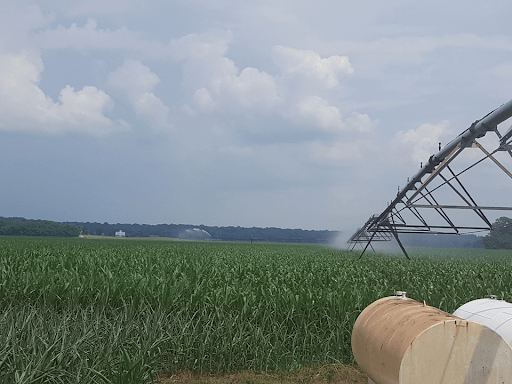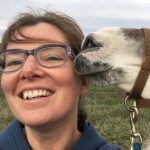If you’re familiar with Dr. Elaine Ingham’s work and the focus of the Soil Food Web School, then you already know how much farmers can benefit from focusing on soil biology and adopting other Regenerative Agriculture practices. These benefits include increased profits, decreased expenses on chemical inputs, improved resiliency in the face of extreme weather events, and even increased independence from government oversight.*
If it’s so Great, why isn’t Regenerative Agriculture Everywhere?
Given how much Regenerative Ag methods have to offer, why aren’t all farmers transitioning NOW? Dr. Tim LaSalle of the Center for Regenerative Agriculture and Resilient Systems outlined many of the challenges farmers face in a recent trip to Washington DC with Soil Food Web School founder, Dr. Elaine Ingham, Executive Director of The Institute for Responsible Technology, Mr. Jeffrey Smith, and SFW Mentor, Dr. Adrienne Godschalx. In this post, we include and expand on the issues Dr. LaSalle outlined. Generally speaking, changing a farmer’s worldview and practices from a chemical-based approach to a holistic approach is a huge challenge. Specifically, some of the key barriers are:
- Tradition: it’s hard to walk away from a history of practices handed down generationally.
- Lack of clarity: as a recent study shows, there is no consistency in how the term “Regenerative Agriculture” is used. Farmers often aren’t sure what exactly it means.
- Lack of expert guidance: farmers have long-standing relationships with agricultural consultants who are trained in the old model that relies on chemical inputs.
- Financial risk: farmers have families to feed and bills to pay–they fear a reduction in income while they transition, and government programs seldom provide support.
- Equipment: farmers have huge investments in their current equipment, and they might not realize most equipment can be adapted for new practices.
- Peer pressure: neighboring farmers often deride farmers who try new things.
- Pride: it’s hard to admit that their current methods might be flawed.
How to Remove Barriers for Farmers

Photo by Todd Harrington at York Farms, Illinois – 3500 acre non-GMO corn being irrigated and injected with activated compost tea at approximately 10-15 gallons per acre.
So, what needs to change to make this transition easier for farmers?
- Farmer networking: farmers who are successful in implementing Regenerative Ag practices need to share their successes more widely–especially with other farmers. Farmers need to be reassured that there can be low risks and high benefits.
- Define “Regenerative Agriculture:” communicators, educators, and advocates need to be clear about what they mean. A lack of specificity can create real-world obstacles to public awareness and supportive policy.
- Government Policy and Funding: for example, government-backed loans should be available for equipment tailored to Regenerative Agriculture, such as compost turners and specialized application equipment. Additionally, government-backed crop loss insurance should also be available for farmers.
- University Funding: there needs to be more funding for Regenerative Agriculture research and programs so that the pipeline of experts is refreshed and expanded.
- Research Acknowledgement: academics must receive recognition for publishing research that reflects holistic thinking in agriculture and related sciences instead of the chemical paradigm.
- Consultant Training: a new generation of Regenerative Ag consultants needs to be trained so farmers have the expert support they need.
No big deal, right? We’re working at the Soil Food Web School to help facilitate some of the changes that need to happen. In addition to training farmers and future consultants about the Soil Food Web Approach and other Regenerative Agriculture practices, we present free educational webinars, and our staff is working with other advocates to educate and influence our government leaders. See below for some ways you can get involved!
What can You Do to Help?
- Buy products from farmers/growers that practice Regenerative Ag whenever possible.
- Ask your local farmers/growers about their practices and, if they don’t already, encourage them to learn about Regenerative Ag.
- Call your elected representatives and let them know you want them to support policy in favor of Regenerative Agriculture.
- If you’re an alumni of a college or university, let them know Regenerative Ag (as well as teaching related sciences such as plant physiology and geology from a more holistic perspective) is important to you. If there is an existing Regenerative Ag program, support it. If there isn’t, let the institution know you’d like to see one.
- If you are a farmer and aren’t yet convinced, learn more about soil biology and Regenerative Ag and how it can benefit your operation.
- If you are a farmer currently using Regenerative Ag practices, share your experience with other farmers.
- If you are a non-farmer/grower and want to help, there are many ways you can educate yourself to make their transition to Regenerative Ag easier. One of those ways is to become a Soil Food Web consultant.
*How can adopting Regenerative Ag practices free me from government oversight? Here’s one example: if you’re not using synthetic pesticides, you don’t have to worry about regulations regarding pesticide drift or runoff.

Heather Boright
Heather lives on a 4-acre homestead in the Willamette Valley of Oregon with her husband and a bunch of leafy, feathered, furry, and wooly macroorganisms. (Plus, of course, countless microorganisms.) She has a BSc in Environmental Education from Western Washington University and loves learning and writing about the science of the natural world.




Thank you so much for this article, Heather. It is well written, and the importance of each of the points you made cannot be overemphasized.
I would like to add that, as with talking to anyone about something they care deeply about, the method of communication may be as important as the content. [Since it is awkward to write s/he and her/him, I will use a woman farmer for this comment.] A consultant will need to be adept at empathizing, acknowledging, and validating a farmer as she communicates her knowledge, feelings, and the values she holds dear. It is possible that listening could be far more important than talking; really, really hearing what the farmer has to say.
I can compare this to finding that the way I was teaching rhythm was not adequate — after having taught that method for a couple decades. If someone had come and suggested a new method, I would have bucked it. “How do YOU know how to teach music? I’m a veteran at this.” My own love of the children and of music, and my own curiosity led me to a better way. But it took time.
I also wonder if it wouldn’t make sense to offer the farmer a free trial with just her own personal vegetable garden, and to give her a fact sheet about how to change over farm equipment — to peruse at her own leisure.
Thank you for your feedback, perspective, and suggestions, Robin!
Has the SFW organization considered joining kindharvest.ag? This was mentioned by John Kempf in the webinar with Dr Elaine. There is a short video clip on the home page to give you an idea how it works. I believe this would be a good window on what farmers with larger acreage are experiencing during the transition to regenerative practices.
Thank you, Bart! Yes, we are discussing ways to connect with Kind Harvest.
I have farmers with small holdings in New Zealand asking me to help them transition. I am part way through FC4. I would love a place to get ideas from more experienced practitioners currently on how best to move to a multi species pasture on relatively steep land for example. Is this a relevant question to put on the Forum or is anyone aware of other places? Would Kind Harvest be relevant? All thoughts appreciated.
Hi Frans – Posting this on the FC Forum is great; the mentors will share any suggestions they have, and your classmates might have resources to share, too.
I’m so excited about the course, and the potential for increased health, of human and planet. . . if anyone knows of ANY job currently supporting this effort, I am looking. . . any internship, temporary summer job, any person in NJ ( I live in Cherry Hill) wanting to start making compost, or wanting to start a permaculture farm, I would love for my job to match my interests (finally)
Hi Sarah – We’re so glad you’re excited about the FC courses! I’d suggest that you use the Student Forum as a way to network with folks that might be in the NJ area.